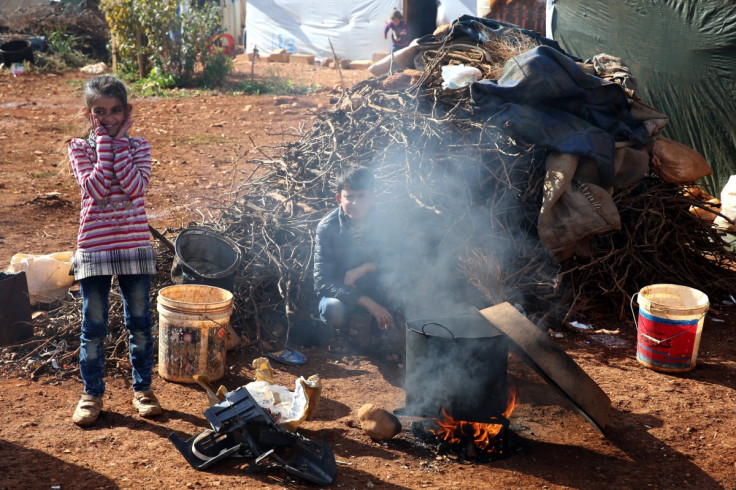Syrian refugees in Lebanon face grave food crisis

Food insecurities of Syrian refugees in Lebanon are mounting, pushing more than half of the migrants into poverty, the United Nations (UN) has said. The situation is believed to have worsened since last year.
Lebanon has more than one million Syrian migrants and about 70% of them are now below "extreme" poverty line, the UN said in a vulnerability assessment report for 2015. The report says the Lebanese government's decision to prohibit refugees from working has reduced their livelihood opportunities.
"The main cause of food insecurity among Syrian refugees in Lebanon is lack of earning power," the report said, adding that Syrians are finding it hard to even fulfil their basic needs. Infants between 6 and 17 months have inadequate feeding, it added.
Lack of new income is taking a toll on the refugees' assets and savings, and their debts are mounting. The condition has given rise to a host of social problems, including psychological pressures, suicidal thoughts, poor health, domestic violence, increasing school dropouts, begging, unlawful jobs and more, the report listed.
"Each day represents a monumental struggle to meet the most basic needs. While the security situation means returning to their homes in Syria is out of the question, their dependency on assistance is growing in parallel with the reduction of available funds. Given the limited possibilities to move to other countries, refugees continue living in a stressful context with no way out," it said.
The report said that Lebanon and the refugees it is hosting are both in a "very delicate" state. It recommends mitigating the restrictions on Syrians' access to Lebanese labour market imposed at the end of 2014.
The UN also recommended scaling up of programmes "to increase the coverage of basic needs (including food) for large proportion of (the) population, particularly through seasonal interventions to address those needs during the seasonal hazards, like the winter period".
© Copyright IBTimes 2024. All rights reserved.






